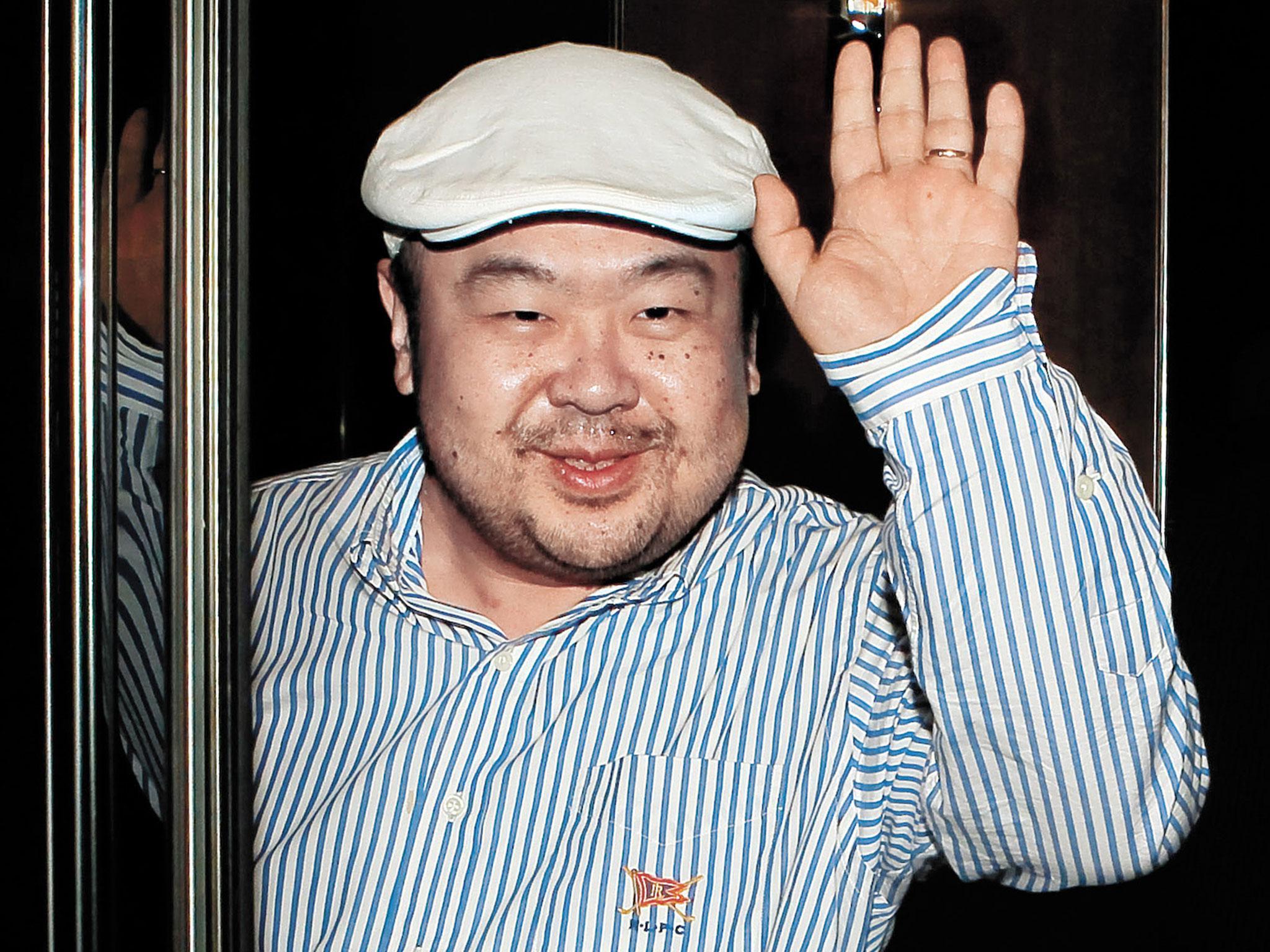Kim Jong-nam assassination: Weapon of mass destruction VX nerve agent used to kill North Korean exile
Malaysian police say female assassins wiped chemical on victim’s face
Your support helps us to tell the story
From reproductive rights to climate change to Big Tech, The Independent is on the ground when the story is developing. Whether it's investigating the financials of Elon Musk's pro-Trump PAC or producing our latest documentary, 'The A Word', which shines a light on the American women fighting for reproductive rights, we know how important it is to parse out the facts from the messaging.
At such a critical moment in US history, we need reporters on the ground. Your donation allows us to keep sending journalists to speak to both sides of the story.
The Independent is trusted by Americans across the entire political spectrum. And unlike many other quality news outlets, we choose not to lock Americans out of our reporting and analysis with paywalls. We believe quality journalism should be available to everyone, paid for by those who can afford it.
Your support makes all the difference.A nerve agent classed as a weapon of mass destruction has been identified as the chemical used to kill Kim Jong-nam.
Malaysian police said VX was wiped on the North Korean exile’s face at Kuala Lumpur International Airport by two women as he prepared to board a flight to Macau.
Tasteless and odourless, the substance can be fatal in a dose of just 10mg through skin contact, making it deadlier than sarin.
After giddiness and nausea, exposure to VX quickly progresses to convulsions and respiratory failure before death, which can come within 15 minutes.
Its lethality has sparked strict controls under UN resolutions and the 1993 Chemical Weapons Convention, with the US, Russia and Syria previously known to be among the countries possessing it.
Police are investigating whether it was brought into Malaysia or made there before allegedly being used by North Korean assassins.
Authorities intended to decontaminate the airport, along with other locations visited by suspects, amid concern VX could have evaporated into the air.

“We will get the experts from the atomic energy department to go to the location and sweep it to see if radioactive (material) is still there,” police chief Khalid Abu Bakar told reporters.
It was unclear whether VX contains any radioactive elements.
Mr Kim, the half-brother of dictator Kim Jong-un, had been living in exile since 2003 after falling out of favour with his father, who he had been tipped to succeed as Supreme Leader.
Two women – one Vietnamese and the other Indonesian – are in custody along with a North Korean man.
Investigators are also seeking seven other North Koreans wanted in connection with the case, including a diplomat pleading immunity at the embassy in Kuala Lumpur.
Interpol has put an alert out to apprehend four suspects who are believed to have fled Malaysia on the day of the attack and police are hunting two other North Koreans believed to remain in Malaysia, including an employee at the state-owned airline Air Koryo.
A chemical weapons analysis unit found VX, or S-2 Diisopropylaminoethyl methylphosphonothioate, present on swabs taken from Mr Kim’s eye and face.
“Other exhibits are under analysis,” Mr Khalid said, adding that the two women were paid to carry out the assault and washed their hands before fleeing from the airport.
But he said one of them had suffered from the effects of the chemical and had been vomiting.
Airport CCTV footage shows the moment of the assault, with Mr Kim later seen asking airport officials for medical help, and rubbing his eyes and stumbling as he entered a clinic.
Authorities said he complained of dizziness and died on the way to hospital.
VX is outlawed except for “research, medical or pharmaceutical purposes” and can be manufactured as a liquid, cream or aerosol, but has no commercial uses and would need to be made in a highly sophisticated laboratory.
North Korea is believed to have the world’s third-largest stockpile of chemical weapons, according to the Nuclear Threat Initiative project, while South Korean analysts have identified sarin and VX as the focus of Pyongyang’s programme.
Additional reporting by Reuters

Join our commenting forum
Join thought-provoking conversations, follow other Independent readers and see their replies
Comments